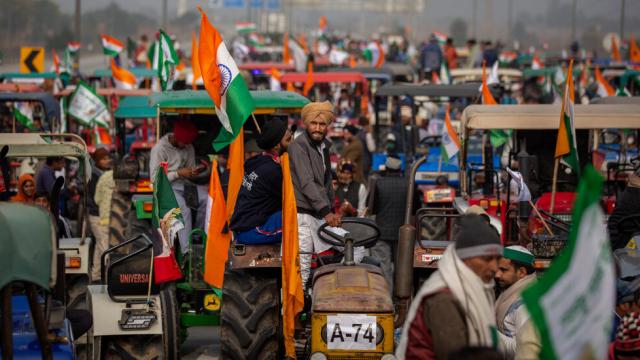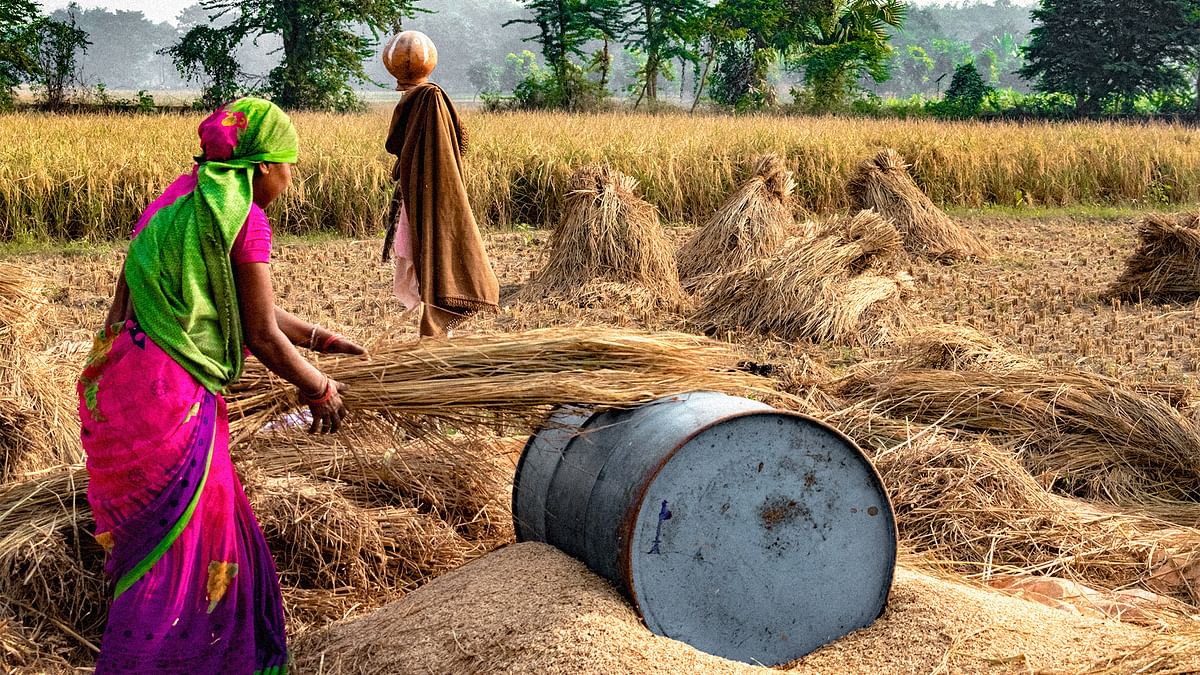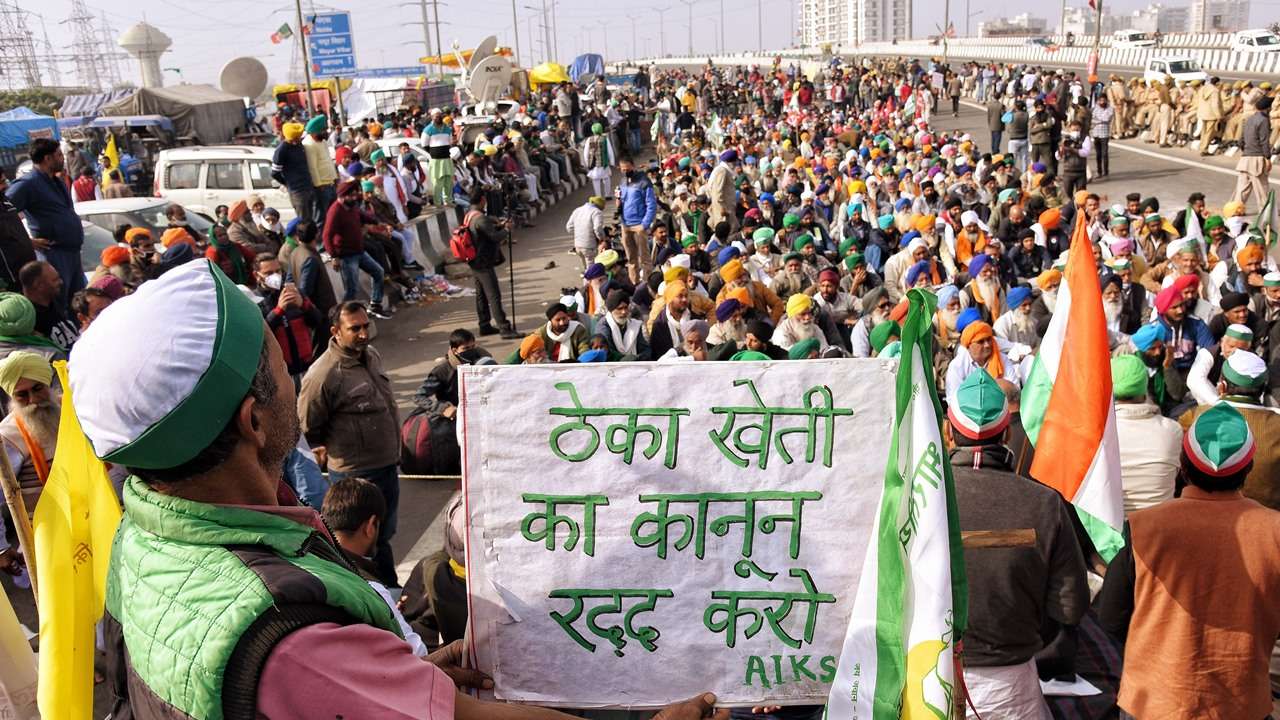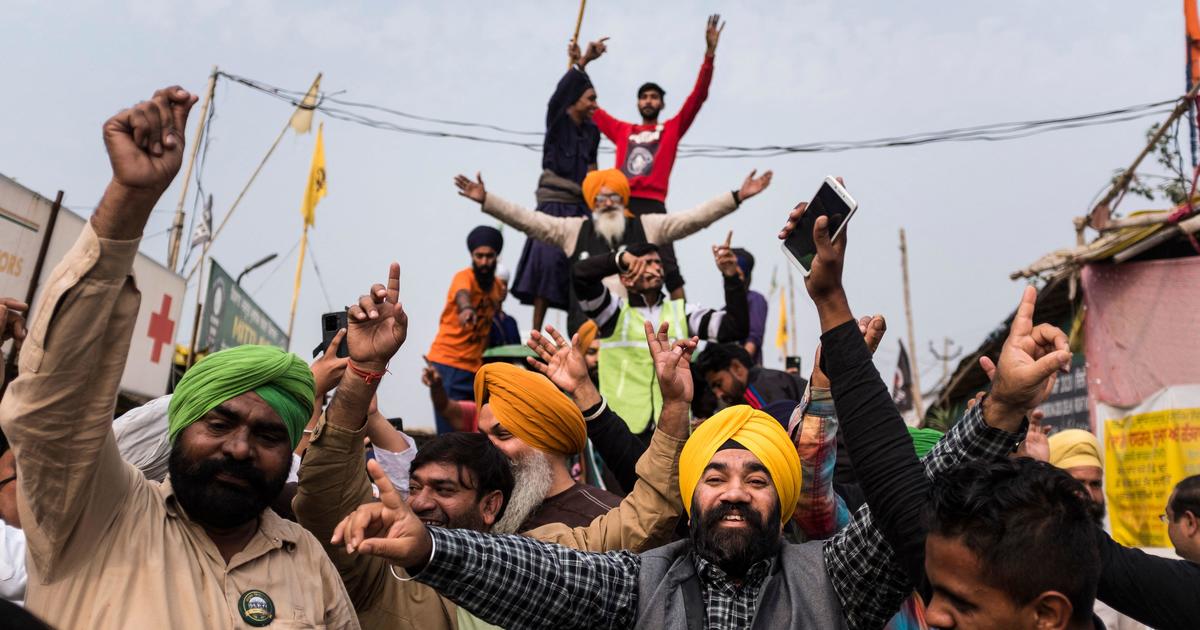
India has a rich history of farmers protesting for agricultural and human rights, but the decisive vic
tory they won earlier this month sets their yearlong fight apart from the rest.
Farmers, the backbone of India’s agrarian economy, left their farms and land earlier this year to brave the cold and live on the streets of Delhi, challenging the might of a government that was bent on reducing their protections, limiting their bargaining power, and encouraging corporate control.
In September 2020, the Indian government passed three pieces of farm legislation, collectively known as the Farm Bills, which initially were seen as encouraging better agricultural production in a sector the International Monetary Fund said had potential for significant reform. Usually, India’s farmers sell their crops at auctions, where they’re guaranteed a minimum price. The new laws aimed to loosen these protections and give corporations – the main buyers of their crops – greater power to fix prices.
This would leave farmers at the mercy of an unregulated corporate-controlled market. Farmers rightfully demanded a government-guaranteed minimum support price that would ensure a basic cost for their produce and protect them from exploitation. One of the organizer groups, the All India Kisan Sabha (AIKS), wrote, “It is the failure to address this demand that has aggravated the agrarian crisis and led to the suicide of over 4 lakh farmers in the last 25 years.”
Corporations and farmers: A dark past
It’s no secret that India is a predominantly agrarian economy, but few countries treat their farmers as shamefully as the world’s largest democracy. In a March 2021 report, entitled “Burdened by debt and unable to eke out a living, many farmers in India turn to suicide,” CBC Canada scathingly criticized the Indian farming community’s average of 28 suicides a day.
“So, the speed with which the reforms were introduced and the amount of control over pricing that it would give profiteering bodies convinced farmers that these reforms would send crop prices plunging,” said Kamal Mitra, an economics researcher and development communication specialist.
India has a murky history of corporations controlling agriculture. As recently as this month, the government revoked a patent for a type of potato exclusively grown for PepsiCo, saying that India’s rules do not allow a patent on seed varieties. Known as the FC5 potato which has just the right kind of moisture content necessary to make the chips marketed by PepsiCo, the company in 2019 had sued four farmers for growing the potato.
During the last few years, farmers have been forced to abandon their life-sustaining work to petition the government for help. In March 2018, during three massive protests, nearly 40,000 of the country’s most indigent farmers marched 182 kilometers from Nashik to Mumbai, demanding the full implementation of a loan waiver scheme and a Forest Rights Act, and compensation for farmers who have lost crops due to natural calamities and insect infestation.
In the interviews I conducted at the time for Occupy.com, the farmers made it clear that while they were happy that the state had responded to their pleas, the central government gave their demands little credence. Now complicating the issue is the ongoing pandemic, which sent many farm laborers back to their villages when city jobs dried up.
“These are now dependent on farming, and they feel further threatened now that every protection seems to be vanishing,” said Vanitha, an agrarian rights worker. Farmers from Punjab, the largest producer of wheat, and Haryana, where wheat and rice are major crops, led the current wave of protests.
Brutal reactions
Initially, the government reacted with violence. As the farmers waited in the unforgiving weather, the government ordered police to use water cannons, tear gas, batons, and other physical threats to break up the strike. At one point, a union minister’s car drove into the protestors, killing nine.
Gurpreet Singh, a 45-year-old farmer who took part in the protests, ultimately committed suicide. He was among the many people broken by lost earnings during the time he had spent on the streets of Delhi trying to get the government to respond. Finally, in December 2021, as The New York Times reported, “After a year of sustained protests by farmers, Prime Minister Narendra Modi has conceded to their demands and said his government would repeal farm laws that his government had enacted to overhaul the country’s agricultural sector.”
The farmers are aware of upcoming elections in which they form a major chunk of the voting block, and acknowledge they played an important role in getting the government to bow, for now, to their demands. As the All India Kisan Sabha declared: “This victory gives more confidence for future struggles.”
However, the minimum support price guarantee remains unaddressed. Since the era when the country fought British imperialists, farmers have been a central focus. Mahatma Gandhi, in his bid to unite the nation against the colonial force, worked tirelessly to abolish Britain’s unfair revenue practices, heavy taxation and cruel landlords in order to provide Indians with greater control over their lands and produce.
But the government in power now appears determined to give into neo-liberal policies and sell out the nation’s farmers to corporate interests. Prime Minister Modi often uses the term “new India,” referring to what he considers an economically resilient country with flourishing growth – while hiding the hollowness of its so-called self-reliance. Criticizing his address to the nation on Independence Day, left-oriented parties in India, according to Press Trust of India, said that “‘New India’ is subservient to corporates and not self-reliant.”
The General Secretary of the Communist Party of India, Sitaram Yechury, has meanwhile gone on record saying that “a people’s movement is the only way to reverse the multi-pronged attacks on our Constitution by this government.”
In modern times, this farmers movement is an excellent example of the what the power of the people – most notably our food growers and agriculturists – can achieve when they unite.
Follow the author @ParoP.



















